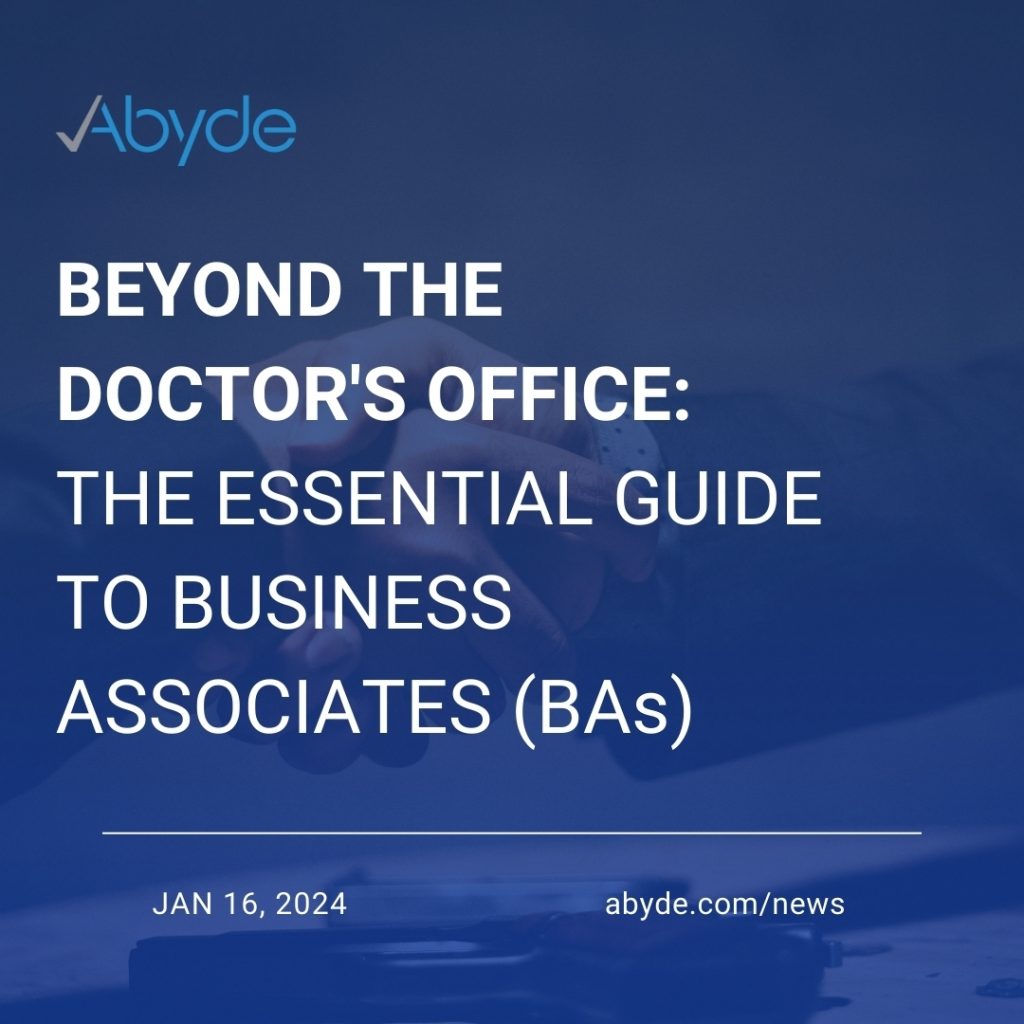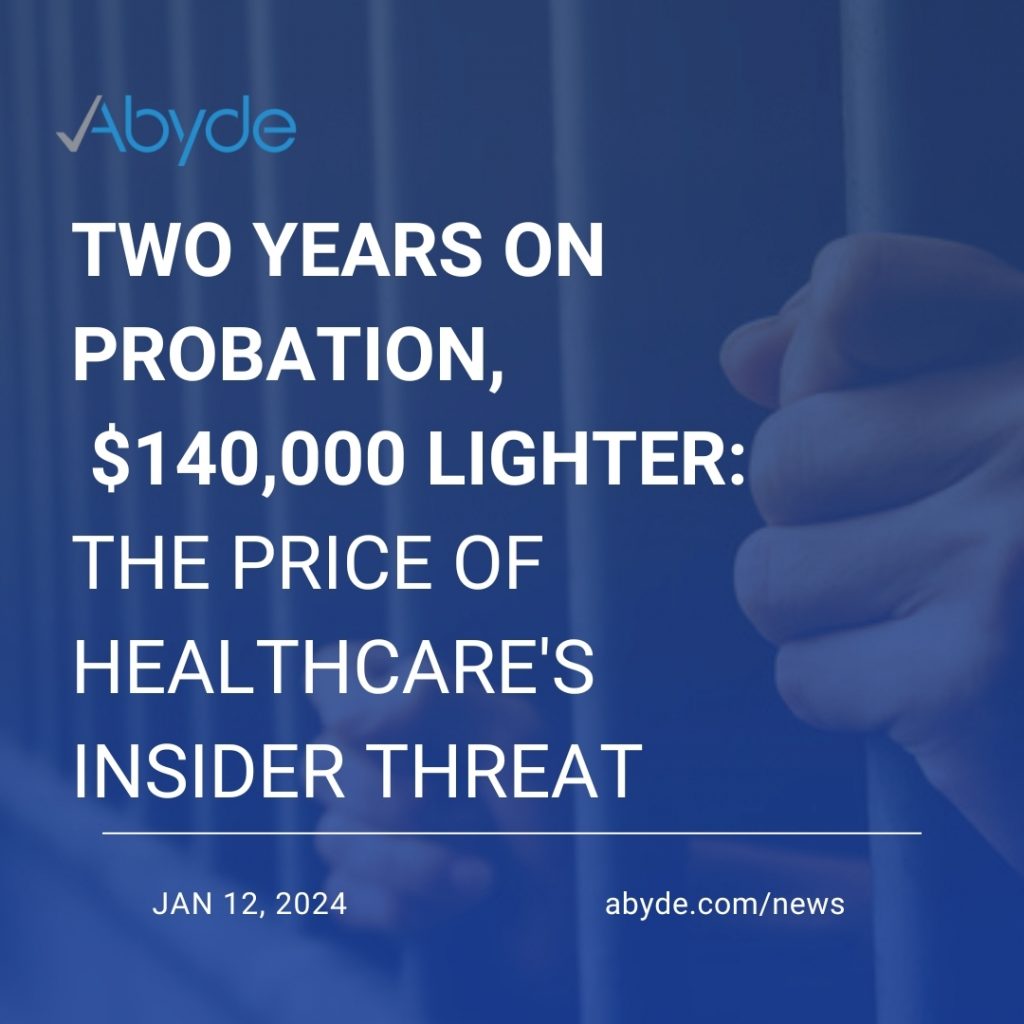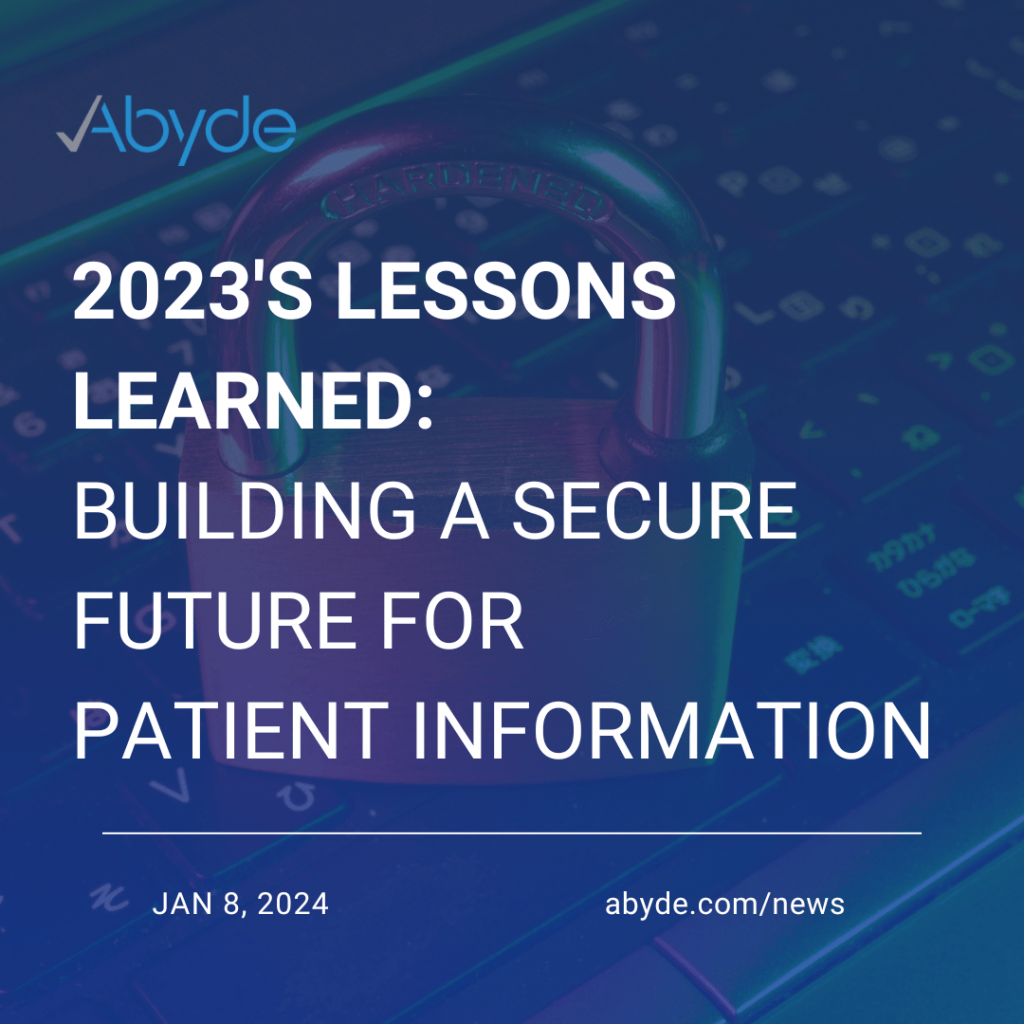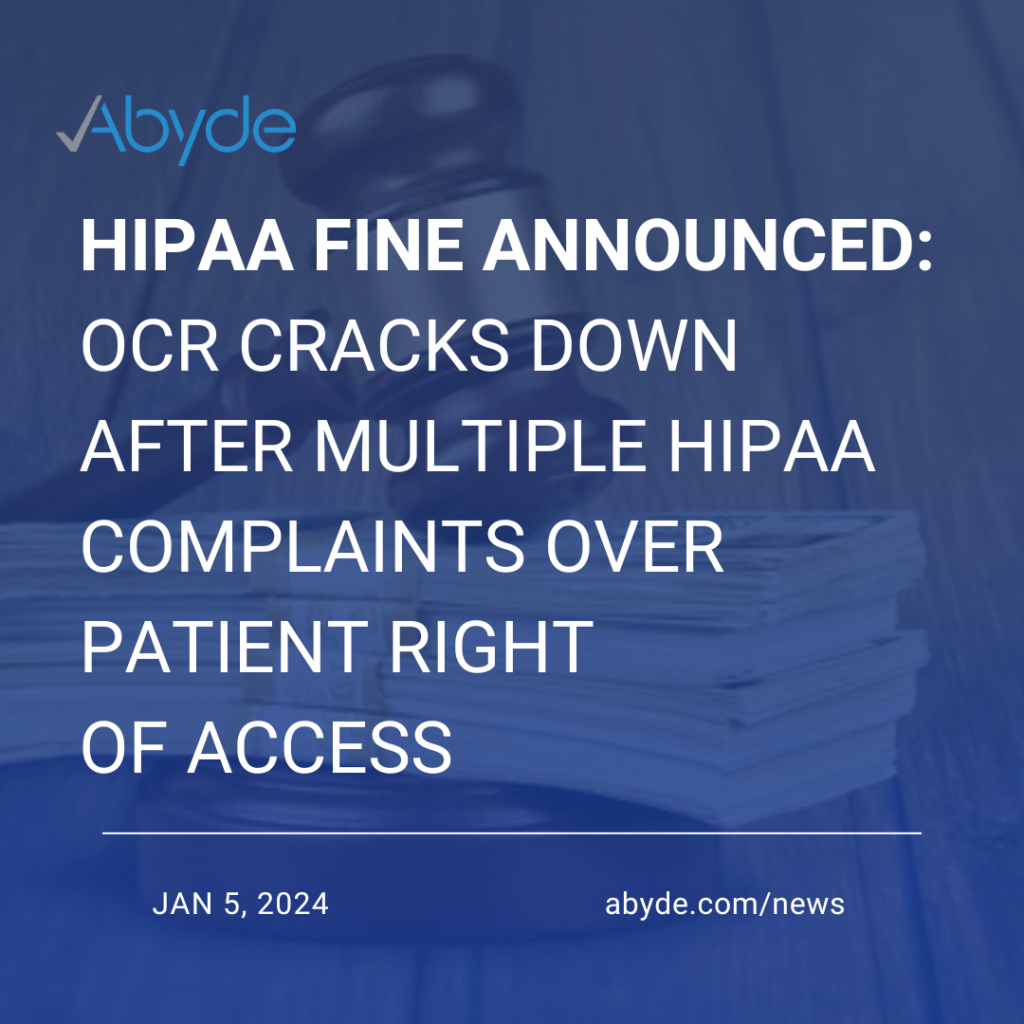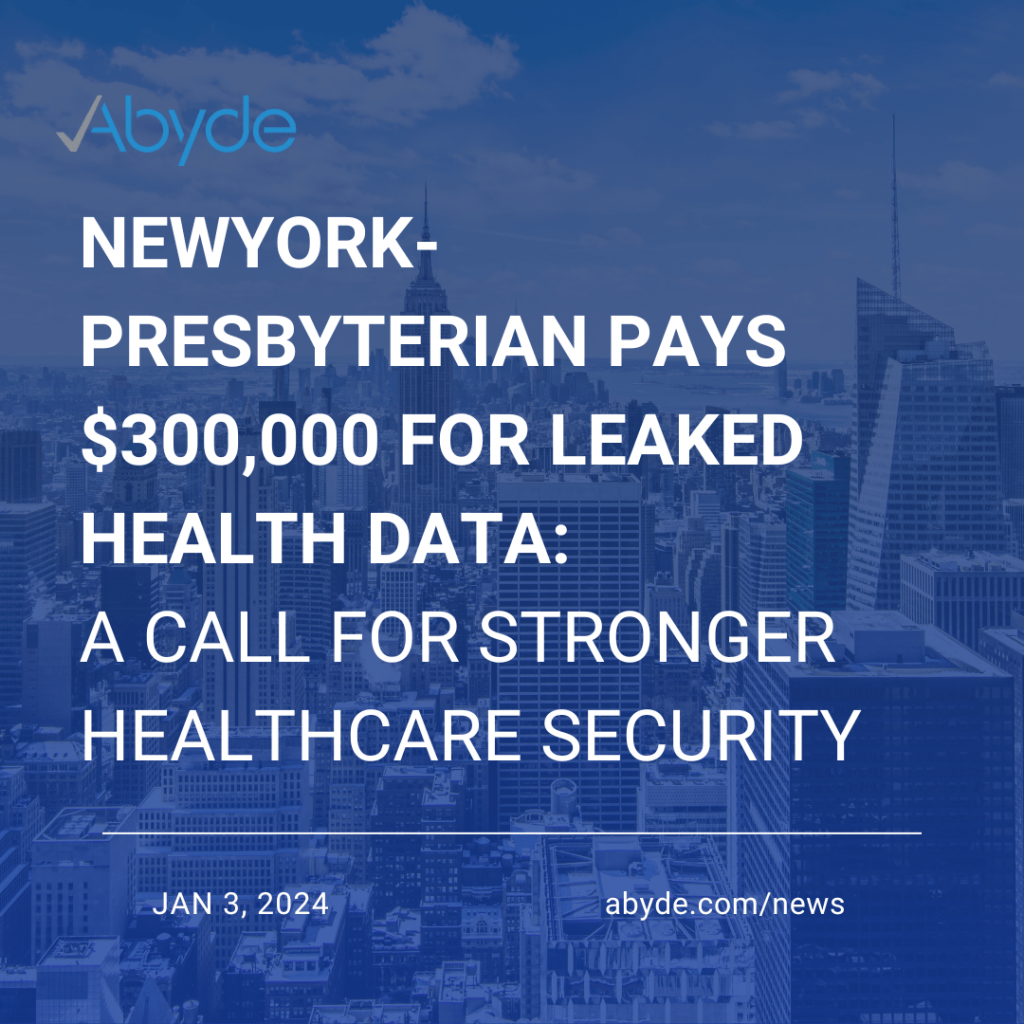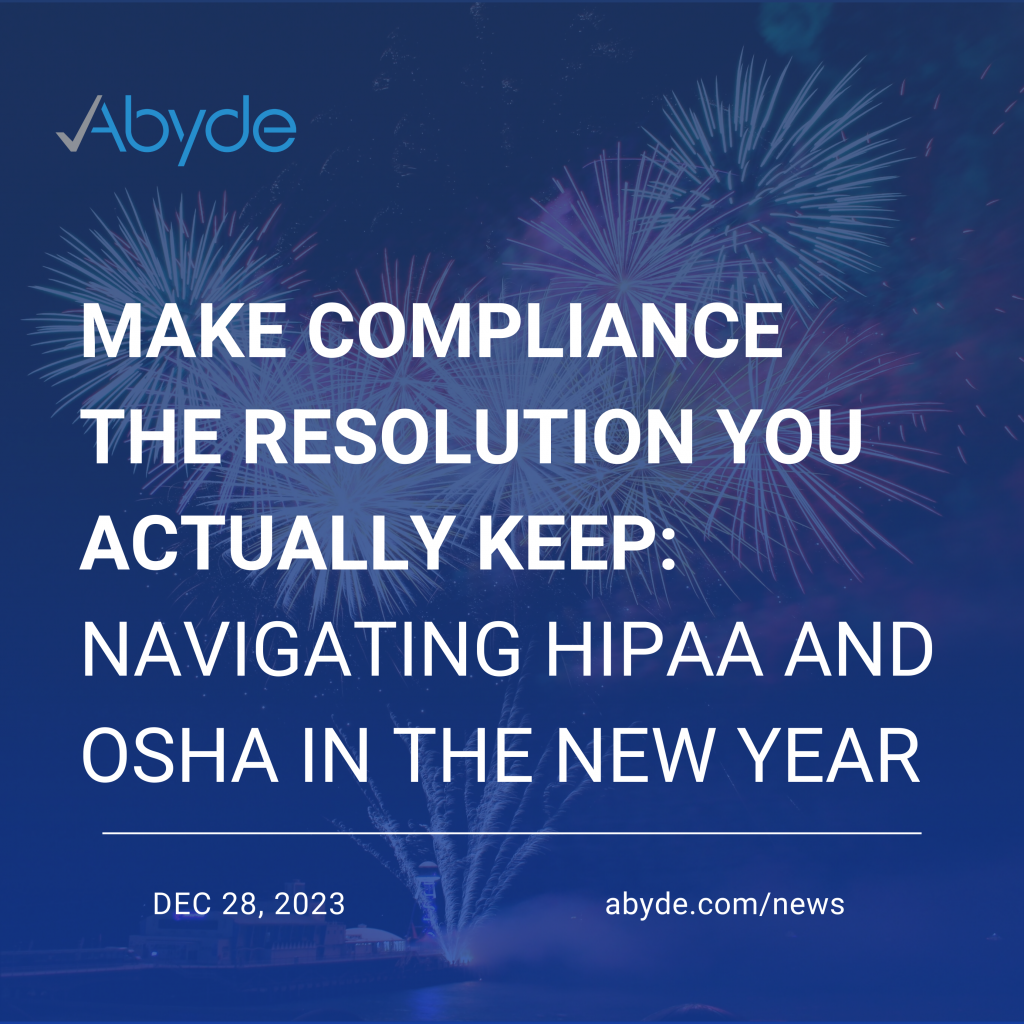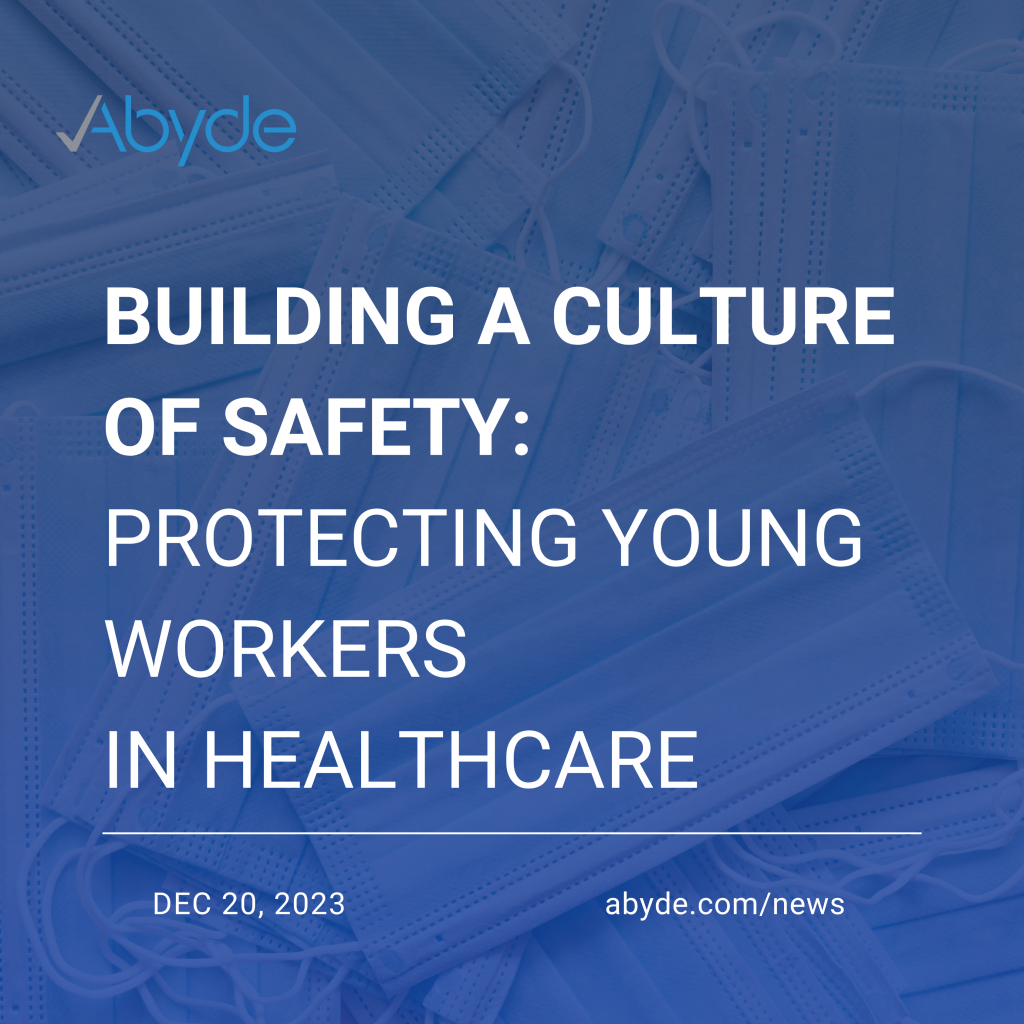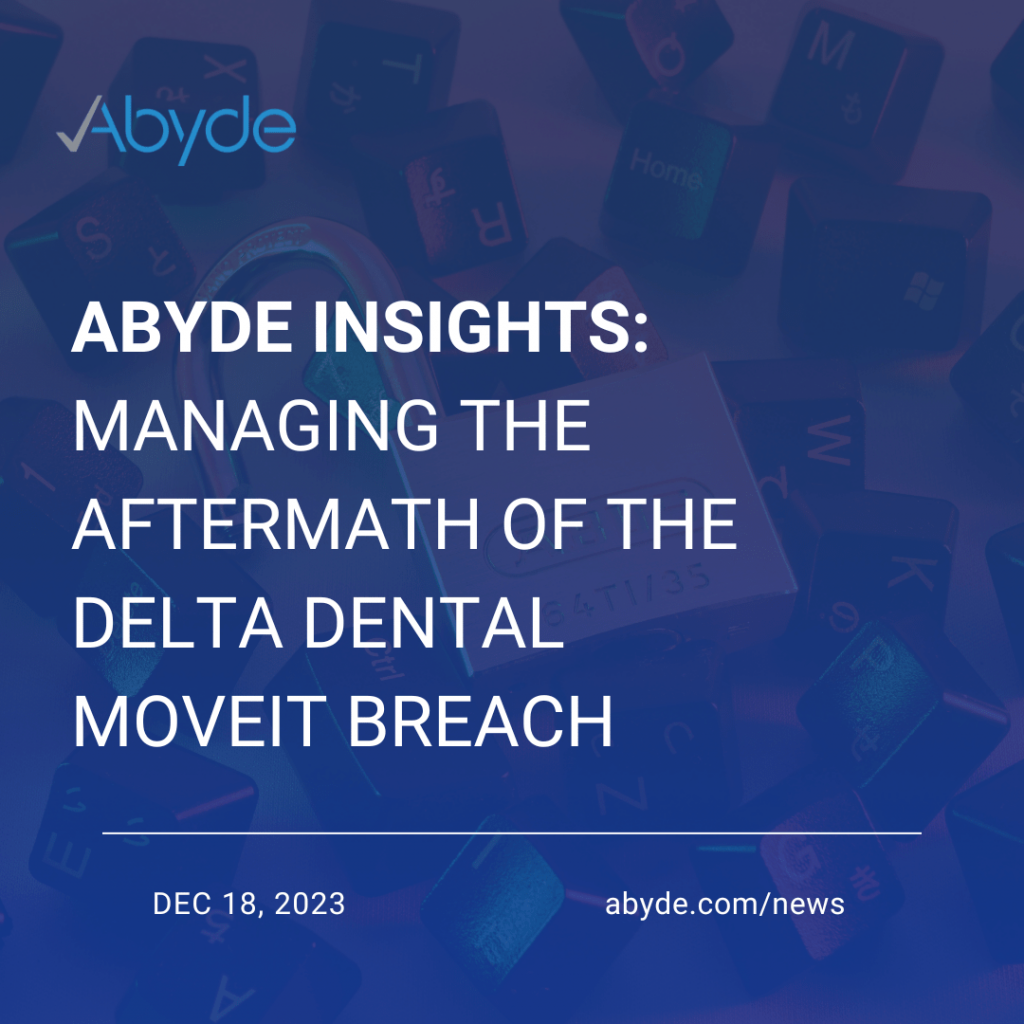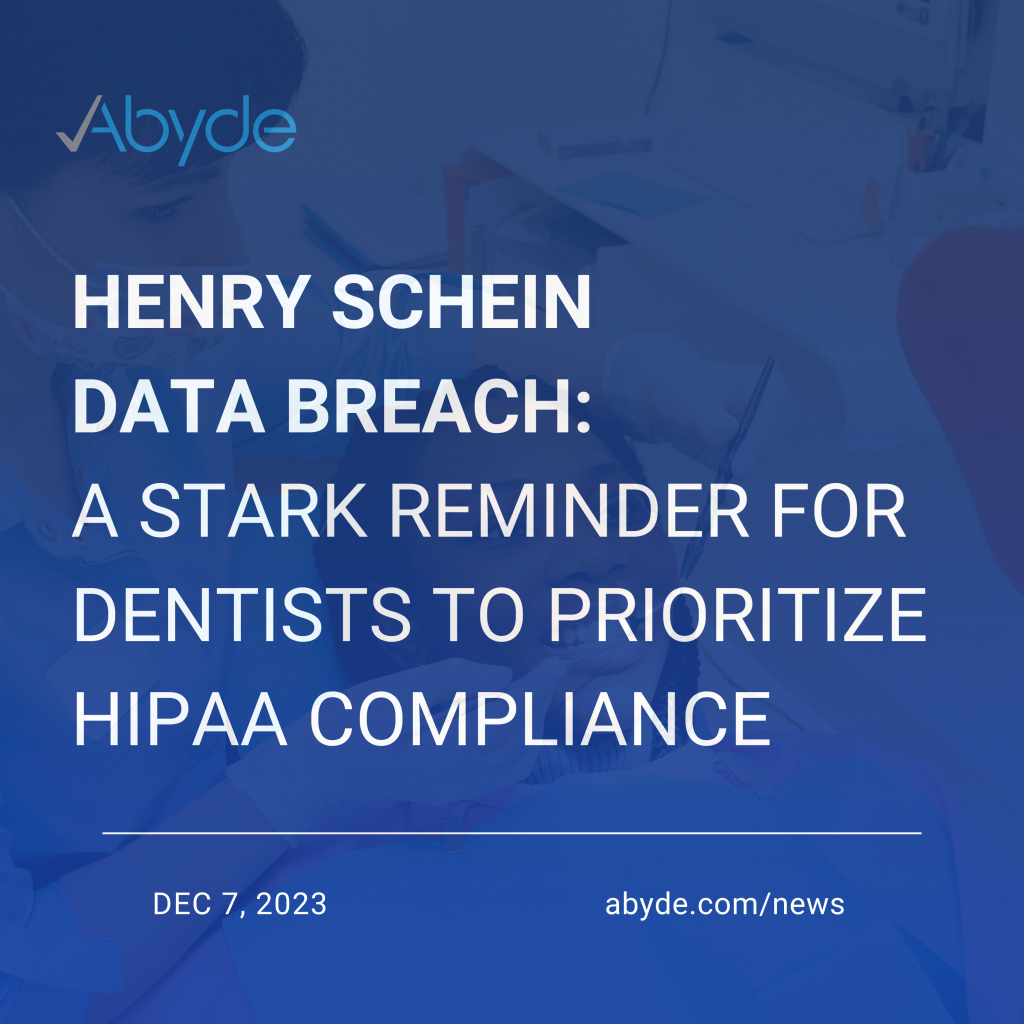January 16, 2024 In the healthcare world, data privacy reigns supreme. That’s where the Health Insurance Portability and Accountability Act (HIPAA) comes in, safeguarding sensitive patient information known as protected health information (PHI). But HIPAA’s reach extends beyond hospitals and doctors’ offices. Enter the business associate (BA): a vital player in the healthcare ecosystem, yet often shrouded in mystery. So, who exactly are BAs? Imagine a bustling healthcare landscape. Hospitals outsource billing services to companies, pharmacies rely on data analytics firms, and insurers partner with cloud storage providers. All these entities, if handling PHI, become BAs under HIPAA. In simpler terms, a BA is any person or organization that performs certain functions or activities involving PHI on behalf of a covered entity (healthcare providers, health plans, and clearinghouses). BAs sometimes are field-specific, like optometrists having eyeglass labs and OCT manufacturers. Dentists also have BAs like dental labs and equipment providers. Think of BAs as the supporting cast in the HIPAA play. They handle crucial tasks behind the scenes, ensuring smooth healthcare operations while keeping patient data secure. But with great responsibility comes great accountability. BAs are bound by the same HIPAA regulations as covered entities, meaning they must: Why are BAs important? BAs play a critical role in the healthcare industry’s efficiency and innovation. They allow covered entities to focus on patient care while outsourcing non-core activities. But more importantly, BAs contribute to a robust system of PHI protection, ensuring patient privacy and trust. The BA landscape is constantly evolving. With the rise of telehealth and cloud computing, new types of BAs are emerging. This highlights the need for ongoing education and awareness about BA responsibilities to maintain robust HIPAA compliance across the healthcare spectrum. Remember: Whether you’re a seasoned healthcare professional or a curious outsider, understanding BAs is crucial for navigating the complex world of HIPAA. By demystifying their role and responsibilities, we can work together to build a stronger, more secure healthcare system for everyone. So next time you hear the term “BA”, remember: they’re not just business associates; they’re essential allies in safeguarding patient privacy and ensuring a healthy future for HIPAA compliance. If you have any other questions on business associates, email us at info@abyde.com, or set up an educational consultation with one of our compliance experts.
Two Years on Probation, $140,000 Lighter: The Price of Healthcare’s Insider Threat
January 12, 2024 Two Years on Probation, $140,000 Lighter: The Price of Healthcare’s Insider Threat A former healthcare executive in Kentucky has been sentenced to probation and ordered to pay restitution after admitting to disclosing patients’ protected health information (PHI) in violation of HIPAA. This case highlights the ongoing threat of insider data breaches in the healthcare industry and the importance of strong data security measures. The Case: Mark Kevin Robison, a former vice president at Commonwealth Health Corporation (now Med Center Health), pleaded guilty to knowingly disclosing PHI of patients under false pretenses to an unauthorized third party between 2014 and 2015. While details of the unauthorized disclosure remain unclear, the incident underscores the potential harm caused by insider data breaches within healthcare organizations. Avoiding Jail, Facing Consequences: Despite facing a potential five-year prison sentence and a $100,000 fine, Robison’s plea deal secured him two years of probation and a $140,000 restitution to the hospital. Half of the restitution has already been paid, and Robison is expected to cover the remaining amount by the end of January. Lessons Learned: The Robison case serves as a stark reminder of the importance of data security in healthcare. Healthcare organizations must: Insider Threats Remain a Challenge: While HIPAA violations by external hackers often grab headlines, insider threats like the Robison case pose a significant and often underestimated risk. Healthcare organizations must prioritize data security measures that take into account both external and internal threats. Looking Ahead: This case should serve as a wake-up call for healthcare organizations to redouble their efforts to protect patient data. By prioritizing data security and creating a culture of compliance, healthcare providers can help ensure that patients’ personal information remains safe and secure. To learn more on how to ensure your practice is compliant, email info@abyde.com and schedule an educational consultation.
From Myth to Mastery: Crafting a Roadmap for Effective Multi-Location Compliance
January 10, 2024 For healthcare organizations juggling multiple locations, HIPAA compliance can feel like a labyrinth. It’s tempting to assume that centralized policies and procedures for one location ensure the whole house is in order. But beware, dear multi-location giants, that assumption can land you in hot HIPAA water! Here are some common misconceptions that can trip up even the most well-intentioned multi-location practice: Myth #1: One Size Fits All for Compliance: Just because your flagship location aces HIPAA audits doesn’t mean the same magic extends to every branch. Each location is a separate entity in the eyes of regulators, and each must have its tailor-made compliance program. This means location-specific risk assessments, policies, and training, not a one-size-fits-all blanket draped over your entire network. Myth #2: Centralized Servers, Centralized Compliance: Sharing patient data across a central server might seem like a compliance shortcut, but it’s a gamble. HIPAA requires reasonable safeguards at every point of protected health information (PHI) storage, use, and transmission. So, even if your central server is Fort Knox-level secure, if a local laptop holding PHI lacks basic encryption, you’re vulnerable. Myth #3: Training Once, Compliant Forever: HIPAA isn’t a one-and-done deal. Staff across all locations need ongoing training to stay up-to-date on evolving regulations and internal practices. Regular refreshers and location-specific training on local procedures are crucial to keeping everyone on the same HIPAA hymn sheet. Myth #4: Breaches Happen Elsewhere: Don’t fall into the trap of thinking data breaches only happen to the other guys. Every location is a potential target, and each must have its own breach response plan, including timely notification protocols and clear communication channels. Remember, ignorance is not bliss when it comes to HIPAA violations. The Multi-Location Advantage: While navigating HIPAA across multiple locations can seem daunting, remember, that size can be your ally. Strong central oversight coupled with empowered local compliance champions can create a robust network of informed and proactive defenders of patient privacy. Invest in technology, like Abyde, that centralizes documentation and streamlines compliance tasks, making it easier for each location to stay on top of its game. The Bottom Line: Multi-location practices, remember, HIPAA compliance is not a game of chance. It’s a strategic necessity. By ditching the common misconceptions and embracing location-specific, proactive compliance initiatives, you can safeguard patient data, avoid costly fines, and build trust with your patients across every branch of your healthcare tree. So, step out of the compliance maze and shine a light on each location – your patients, your business, and your peace of mind will thank you for it. Want To Separate Myth vs Reality in Your Own HIPAA Compliance? TAKE THE HIPAA CHALLENGE
2023’s Lessons Learned: Building a Secure Future for Patient Information
January 8, 2024 The year 2023 marked a turning point in healthcare data privacy. HIPAA compliance took center stage, with both the Office for Civil Rights (OCR) and state Attorneys General flexing their muscles and delivering hefty settlements for violations. This surge in enforcement activity sends a clear message: protecting patient data is crucial and required for practices. Ransomware reared its ugly head, leaving a trail of exposed records and compromised privacy. OCR’s first-ever settlement for a cyberattack, involving over 200,000 individuals impacted by Doctors’ Management Services, and costing the organization a $100,000 fine. This highlights the growing threat of malware and the need for robust cybersecurity measures. Investigations also revealed systemic vulnerabilities in security practices, risk analysis, and incident response, exposing crucial areas for improvement. Financial penalties skyrocketed in 2023, reflecting a zero-tolerance stance towards HIPAA non-compliance. From LA Care’s $1.3 million settlement for inadequate security to St. Joseph’s Medical Center’s $100,000 fine for unauthorized PHI disclosure, we see that violations come with a steep price tag. Hacking remained the primary culprit of breaches. Over 77% of the large breaches reported to OCR were due to hacking. In addition, the large breaches reported this year have affected over 88 million individuals, an increase of over 60% compared to 2022. This alarming trend underscores the urgency of prioritizing patient data protection and implementing robust cybersecurity solutions. The year 2023 also saw a stark reminder that safeguarding patient information extends beyond digital security. The Kaiser Foundation Health Plan’s $49 million settlement, while not directly fined by the OCR, but the State Attorney General of California, served as a cautionary tale. The case centered on the organization’s improper disposal of PHI and hazardous waste in dumpsters, exposing sensitive information and potentially harmful materials to anyone who stumbled upon them. This incident highlights the critical need for comprehensive data governance policies encompassing not just digital security protocols but also physical procedures for secure storage, transportation, and disposal of any materials containing PHI. While the statistics paint a grim picture, they also present an opportunity for positive change. Abyde, a leading provider of compliance software, believes this heightened awareness can be a catalyst for improvement. By embracing comprehensive and intuitive compliance solutions, enforcing policies and procedures and fostering a culture of compliance in your practice or organization, we can ensure patients’ data is safe. 2023 may have been a year of reckoning for HIPAA compliance, but it will be the foundation of a secure 2024. Let’s work together to prioritize patient privacy, strengthen security and overall, promote a culture of compliance, to keep patients safe. Contact Abyde today at info@abyde.com or set up a demo to see how our compliance software will keep your practice and patients safe this new year.
HIPAA Fine Announced: OCR Cracks Down After Multiple HIPAA Complaints Over Patient Right of Access
January 5, 2024 Patients at Optum Medical Care in New Jersey and Connecticut had a frustrating experience: waiting months for their medical records. They requested their records, as guaranteed by the Health Insurance Portability and Accountability Act (HIPAA), but Optum dragged its feet for months, far beyond the 30-day legal limit. Fed up with the delays, several patients filed complaints with the Office for Civil Rights (OCR). The OCR investigated and found that Optum had indeed violated the law. As a consequence, Optum has been slapped with a $160,000 fine and ordered to implement a corrective action plan to speed up the record-sharing process. This case is a reminder of two important things: This case is also the 46th enforcement action taken by the OCR under its Right of Access Initiative, highlighting the importance of timely access to medical records for patients across the country. Abyde: Your Partner in HIPAA Compliance At Abyde, we recognize the stress practices undergo trying to stay in compliance. We remain committed to supporting practices in navigating the complexities of HIPAA compliance, with a specific emphasis on the importance of providing patients medical records within the allotted time frame. Contact Abyde today at info@abyde.com and set up a demo to see why Abyde is considered the pre-eminent HIPAA compliance solution.
NewYork-Presbyterian Pays $300,000 for Leaked Health Data: A Call for Stronger Healthcare Security
January 3, 2024 At Abyde, we’re always tuned into the importance of keeping health info safe and sound. So, when we heard about what happened at NewYork-Presbyterian Hospital (NYP), you can bet we were listening. The big news? New York’s Attorney General Letitia James announced a whopping $300,000 settlement with NYP. This was a major letdown in the world of HIPAA compliance, revealing some serious gaps in how they were handling patient privacy and protected health information (PHI). Here’s the lowdown: Patients using NYP’s website to look for healthcare services got more than they bargained for. Unbeknownst to them, advertising tools were tracking their online moves, and sending information to third parties. Talk about a breach of trust, especially when we’re dealing with sensitive health info! This whole fiasco reminds us just how crucial HIPAA compliance is. It wasn’t just some tech glitch at NYP; it was a broken promise to keep patient data secure. This shows that following HIPAA rules isn’t just ticking a box; it’s a super important, continuous part of healthcare operations, needing tight controls and constant vigilance. The fallout from this kind of breach? Huge. We’re talking about identity theft, discrimination, and other nasty stuff that could hurt patients. It’s a stark reminder to healthcare folks that patient data isn’t just some digital file; it’s a deeply personal and private matter that deserves the utmost respect and protection. So, what’s the takeaway from NYP’s settlement? It’s just the start of a much bigger journey towards really valuing patient privacy rights. This incident should be a loud wake-up call for the healthcare industry to take a hard look at how they manage patient data, ensuring they stick to data protection laws and honor the dignity and privacy of the information patients trust. At Abyde, we’re all about compliance and keeping sensitive info safe. We see this moment as a chance for some serious thinking and action to make healthcare more secure and respectful of privacy. Let’s use the NYP breach as a lesson in what can happen if patients’ data isn’t secured properly. For more information about Abyde, email info@abyde.com and click here to schedule a demo of our revolutionary software solution.
Make Compliance the Resolution You Actually Keep: Navigating HIPAA and OSHA in the New Year
December 28, 2023 As the New Year unfolds, healthcare organizations face the ongoing challenge of maintaining compliance with HIPAA and OSHA regulations. Abyde, your partner in compliance, offers an expanded toolkit of tips and strategies to not only meet but exceed these requirements. Enhanced Training Programs: Keep your staff updated with the latest in HIPAA and OSHA regulations. Regular training ensures everyone is on the same page and reduces the risk of unintentional non-compliance. Tailor training to different roles within your organization for targeted learning. Advanced Risk Assessments: Utilize assessments that go beyond surface-level checks. Incorporate regular audits to continually evaluate and improve your compliance. Abyde’s software includes a comprehensive risk analysis, which allows you to continuously check your adherence to compliance. In-depth Regulatory Updates: Stay ahead of the curve by not just staying informed, but also analyzing how new regulations impact your specific practice. Consider workshops and detailed briefings for in-depth understanding. Building a Robust Compliance Culture: Create an environment where compliance is more than a requirement – it’s a value. Engage staff at all levels in discussions about the importance of compliance and how it protects everyone involved. Expert Consultation and Support: Utilize Abyde’s expert advisory services for complex compliance issues. Tailored guidance can help navigate unique challenges your practice may face. Patient and Staff Engagement: Educate your patients and staff about their rights and responsibilities under HIPAA and OSHA. This not only aids in compliance but also builds trust and transparency in your healthcare services. Regular Policy Reviews and Updates: Keep your policies and procedures up-to-date with evolving regulations. A proactive approach to policy management can prevent potential compliance gaps. Emergency Preparedness and Response Planning: Include compliance considerations in your emergency preparedness plans. Ensure that even in a crisis, your practice adheres to HIPAA and OSHA standards. Celebrating Compliance Milestones: Acknowledge and celebrate your team’s efforts in maintaining compliance. This boosts morale and reinforces the importance of these efforts. As we prepare for 2024, let’s prioritize compliance not just as a legal necessity but as a fundamental component of quality healthcare delivery. Abyde stands with you in this journey, offering comprehensive tools and resources to ensure that your New Year’s resolution of compliance is one you actually keep. For more insights and support in achieving and maintaining HIPAA and OSHA compliance from Abyde, email us at info@abyde.com, or schedule a consultation with one of our compliance experts here!
Building a Culture of Safety: Protecting Young Workers in Healthcare
December 20, 2023 Protecting patients and our young workforce is a shared responsibility. At Abyde, we’re committed to safety, both for patients and for the dedicated individuals who keep our healthcare systems running. That’s why the recent tragedy at Florence Hardwoods sawmill in Wisconsin hit us hard. A 16-year-old worker, tragically, lost his life due to operating dangerous machinery without proper training. This heartbreaking incident underscores a crucial point: age restrictions matter when it comes to workplace safety, especially when dangerous equipment is involved. The U.S. Department of Labor’s investigation revealed Florence Hardwoods failed to train both teenage and adult workers in safety procedures, exposing them to avoidable hazards. This blatant disregard for regulations and basic human safety is unacceptable. As Abyde, we stand firmly against the use of underage workers for tasks that put them or others at risk. Why is this so important? What can we do? The tragedy at Florence Hardwoods serves as a stark reminder that workplace safety isn’t just about following regulations; it’s about protecting lives. At Abyde, we urge all healthcare institutions, to re-evaluate their safety protocols and ensure that age-appropriate restrictions are in place to protect young workers from harm. It’s time to say “no more” to child’s play with dangerous medical equipment. Let’s create a safer future for everyone in the healthcare workplace. Together, we can prevent future tragedies and ensure that every healthcare worker, regardless of age, returns home safe and sound every day. Additional Resources
Abyde Insights: Managing the Aftermath of the Delta Dental MOVEit Breach
December 18, 2023 In the ever-evolving landscape of cybersecurity, vigilance is key. Recently, Delta Dental of California faced the brunt of a cyberattack, highlighting the imperative need for robust security measures. At Abyde, we believe in keeping our community informed to fortify defenses against potential threats. Here’s a closer look at the Delta Dental MOVEit breach and insights on strengthening your cybersecurity posture. Understanding the Breach Delta Dental of California, an esteemed provider of dental insurance to 45 million individuals, fell victim to the Clop hacking group’s exploitation of a zero-day vulnerability in Progress Software’s MOVEit Transfer solution. This breach, affecting a staggering 6,928,932 dental plan members, underscores the critical importance of cybersecurity in safeguarding sensitive information. Timeline of Events The breach unfolded when Delta Dental identified an SQL injection vulnerability (CVE-2023-34362) in MOVEit Transfer on June 1, 2023. Despite Progress Software swiftly releasing an emergency patch on May 31, 2023, the Clop group had exploited the flaw between May 27 and May 30, 2023. The aftermath saw unauthorized access and data exfiltration from Delta Dental’s MOVEit server. Response and Analysis Delta Dental responded promptly, engaging third-party computer forensics experts to conduct a thorough analysis. The complexity of the breach required meticulous scrutiny, leading to the finalization of the affected individuals and data types on November 27, 2023. Notification letters commenced distribution on December 14, 2023. Protective Measures for Affected Individuals In an effort to mitigate the impact on affected individuals, Delta Dental has taken proactive steps. Those affected are being offered 24 months of complimentary credit monitoring and identity theft protection services. This measure aims to empower individuals to monitor and protect their personal information during this challenging time. Learning from the Incident While Delta Dental emphasized that this was a mass exploitation incident affecting numerous companies, the magnitude of the breach sets it apart. With nearly 7 million individuals affected, it stands as the third-largest healthcare MOVEit-related breach reported. HIPAA Compliance and Notification Delta Dental adhered to the HIPAA Breach Notification Rule, reporting the breach to the HHS’ Office for Civil Rights on September 6, 2023, within the stipulated 60-day timeframe. The intricate process of identifying affected individuals and data involves digital forensic and incident response providers, highlighting the complexities of incident response. At Abyde, we advocate for a proactive approach to cybersecurity and compliance. Regularly updating and patching software, conducting comprehensive risk assessments, and fostering a culture of compliance are crucial components of a resilient HIPAA compliance strategy. Abyde is here to guide you on your journey to enhanced security and privacy. Reach out to one of our experts today to learn more! Call 800.594.0883 or email info@abyde.com.
Dissecting the Henry Schein Data Breach: A Stark Reminder for Dentists to Prioritize HIPAA
December 11, 2023 In October 2023, Henry Schein, a major dental supply distributor, suffered a significant data breach. The ransomware attack compromised sensitive information belonging to both patients and dental practices, including names, addresses, Social Security numbers, and financial information. This incident serves as a stark reminder for dentists of the importance of taking data security and compliance seriously. Key Takeaways from the Henry Schein Data Breach: Mitchell Rubinstein DMD, a practicing dentist and noted cybersecurity educator in New York City is hoping this is the wakeup call that dental professionals need to start taking cybersecurity and HIPAA seriously. “An important thing to learn from the Henry Schein breach is that everyone is vulnerable. They’re a multibillion dollar healthcare corporation with far greater resources than any dental practice. If they can fall victim to a cyberattack, then so can any of us.” He went on to add, “Having a plan in place to respond to a cyberattack is just as important as having a plan to prevent one.” What dentists can do to protect their practices: “The companies we do business with accumulate a great deal of information about us,” Dr. Rubinstein stated. “If that information is compromised in a cyberattack, it can result in several layers of harm, not only to us, but to our patients as well.” Abyde: Your Partner in Cybersecurity and Compliance Abyde understands the importance of data security and compliance for dental practices. We offer a comprehensive solution designed to help protect you from data breaches and audits while also helping you ensure HIPAA compliance. Our solution includes: By taking data security and compliance seriously, dentists can help prevent data breaches, protect their patients, and avoid legal ramifications. Let’s work together to create a safer environment for everyone involved in dental care. Contact Abyde today to learn more about our HIPAA-compliant solutions and how we can help you protect your practice. Call Abyde! 800.594.0883 or Email Us info@abyde.com Additional Resources:The Department of Health and Human Services (HHS) website on HIPAA
